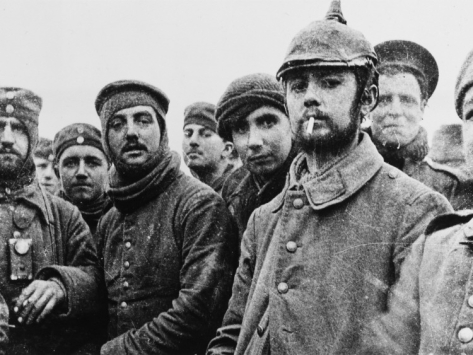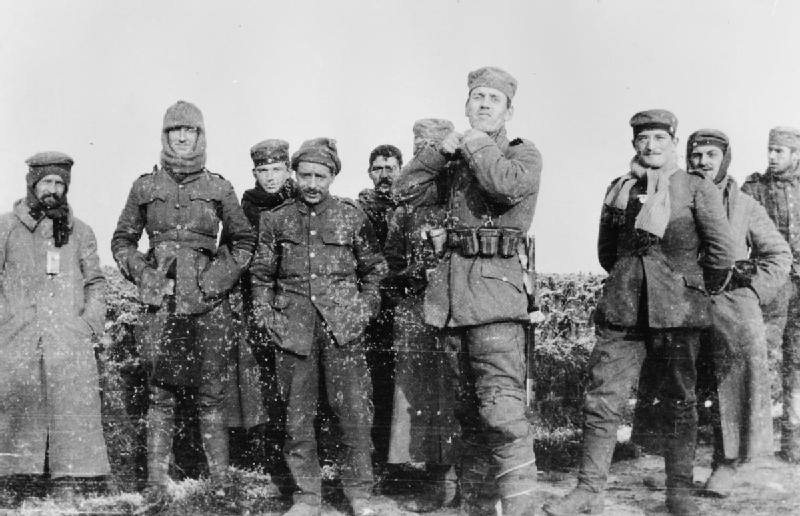Widespread Fraternization of German and Allied Troops.
Spontaneous Outpouring of Anti-War Sentiment.
Special to The Great War Project
(24-25 December) And now something unexpected happens – something that will echo powerfully down through these one hundred years.
Something that historians call “a spontaneous outburst of pacific feeling” in the war zones, according to historian Martin Gilbert. Darkness falls on Christmas Eve a century ago, and there is “in sections of the front line a moment of peaceable behavior.”
Across No-Man’s Land, “we got into conversations with the Germans who were anxious to arrange an Armistice during Christmas,” writes one young British officer in his battalion’s war diary. ‘A scout named E. Murker went out and met a German Patrol and was given a glass of whisky and some cigars, and a message was sent back saying that if we didn’t fire at them, they would not fire at us.’
Reports Gilbert, “That night, on a front where five days earlier there had been savage fighting, the guns were silent.”
“On the following morning, German soldiers walked across towards the British wire, and British soldiers went out to meet them.” They exchange souvenirs.
The British give the Germans plum puddings, which pleases the Germans.
Then the two sides agree to bury the dead from fighting a week early. Many dead men still lie on the battlefield. “The Germans brought the bodies to a half way line,” wrote the British officer in the battalion diary.” Chaplains from both sides say prayers. “The whole of this was done in great solemnity and reverence.”
The Christmas Truce of December 24th and 25th does not take place at just a single spot on the trenches of the Western Front. “That Christmas Day,” reports Gilbert, “fraternization between the Germans and their enemies took place almost everywhere in the British No-Man’s Land, and at places in the French and Belgian lines.”
“It was almost always initiated by German troops, through either messages or song.”
Music plays an important role. At one town in Flanders, a German soldier sings a serenade, and British troops ask for another. In many places along the front, soldiers sing Silent Night. They come out of their trenches. “Most peculiar Christmas I’ve ever spent,” writes another soldier in his diary. “One could hardly believe the happenings.”
Some kick a soccer ball around. Some British soldiers are actually invited in to the German trench.
“There was not an atom of hate on either side that day,” reports another British officer. One German soldier, a hairdresser in civilian life, even cuts the hair of a German soldier.
This spontaneous outpouring of anti-war emotion does not please the British commander-in-chief, Sir John French. When French learns of it, he later recalls: “I issued immediate orders to prevent any recurrence of such conduct, and called the local commanders to strict account, which resulted in a good deal of trouble.
The General Staff of one British division issues orders “that…
…such unwarlike activity must cease.”
So elsewhere on other battlefields, the war continues. On Christmas Day British seaplanes attack German Zeppelin sheds. And in Alsace, French Foreign Legionnaires are ordered to continue fighting.
They follow orders.


